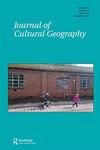Exploring Indigenization and decolonization in cross-cultural education through collaborative land-based boundary education
IF 0.9
Q3 GEOGRAPHY
引用次数: 2
Abstract
ABSTRACT This article considers the potential for collaboratively produced boundary education as an advancement of the boundary work concept in academia. The boundary work process aims to support collaboration that works around social, cultural, political, epistemological, and other forms of boundaries. We explore how education can act as a boundary object through the development and implementation of a pilot project for land-based educational programming offered through a university. In particular, we share observations arising through a land-based education initiative that engaged Indigenous land stewards from Wabaseemoong Independent Nation and students from The University of Winnipeg. Our approach is grounded in an extended conceptual framework and process for conducting boundary work in the context of collaborative educational design and implementation involving educators from academia and Indigenous community partners. The pilot project provided baseline insights for future boundary education collaborations and provided some direction for future work.通过合作的陆地边界教育探索跨文化教育中的本土化和非殖民化
摘要本文认为,作为边界工作概念在学术界的进步,合作生产边界教育的潜力。边界工作过程旨在支持围绕社会、文化、政治、认识论和其他形式的边界进行的合作。我们探讨如何通过开发和实施一个由大学提供的陆基教育方案试点项目,将教育作为一个边界对象。特别是,我们分享了由Wabaseemoong独立民族的土著土地管理员和温尼伯大学学生参与的陆基教育倡议产生的观察结果。我们的方法基于一个扩展的概念框架和过程,用于在学术界和土著社区合作伙伴的教育工作者参与的合作教育设计和实施背景下进行边界工作。该试点项目为未来的边界教育合作提供了基线见解,并为未来的工作提供了一些方向。
本文章由计算机程序翻译,如有差异,请以英文原文为准。
求助全文
约1分钟内获得全文
求助全文
来源期刊

Journal of Cultural Geography
GEOGRAPHY-
CiteScore
1.70
自引率
22.20%
发文量
15
期刊介绍:
Since 1979 this lively journal has provided an international forum for scholarly research devoted to the spatial aspects of human groups, their activities, associated landscapes, and other cultural phenomena. The journal features high quality articles that are written in an accessible style. With a suite of full-length research articles, interpretive essays, special thematic issues devoted to major topics of interest, and book reviews, the Journal of Cultural Geography remains an indispensable resource both within and beyond the academic community. The journal"s audience includes the well-read general public and specialists from geography, ethnic studies, history, historic preservation.
 求助内容:
求助内容: 应助结果提醒方式:
应助结果提醒方式:


